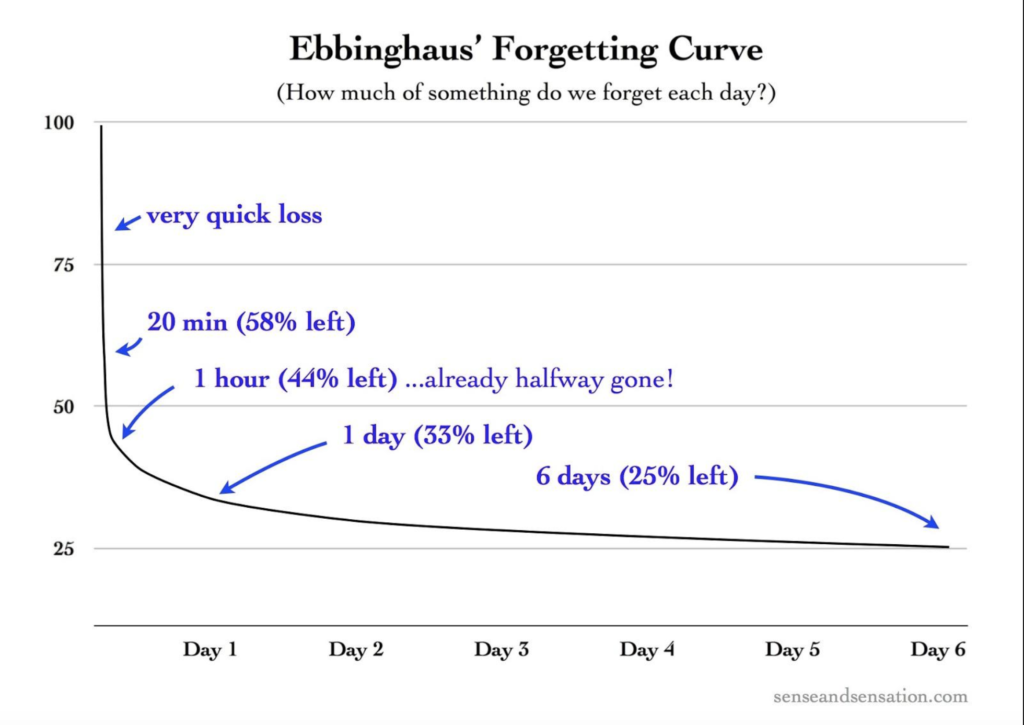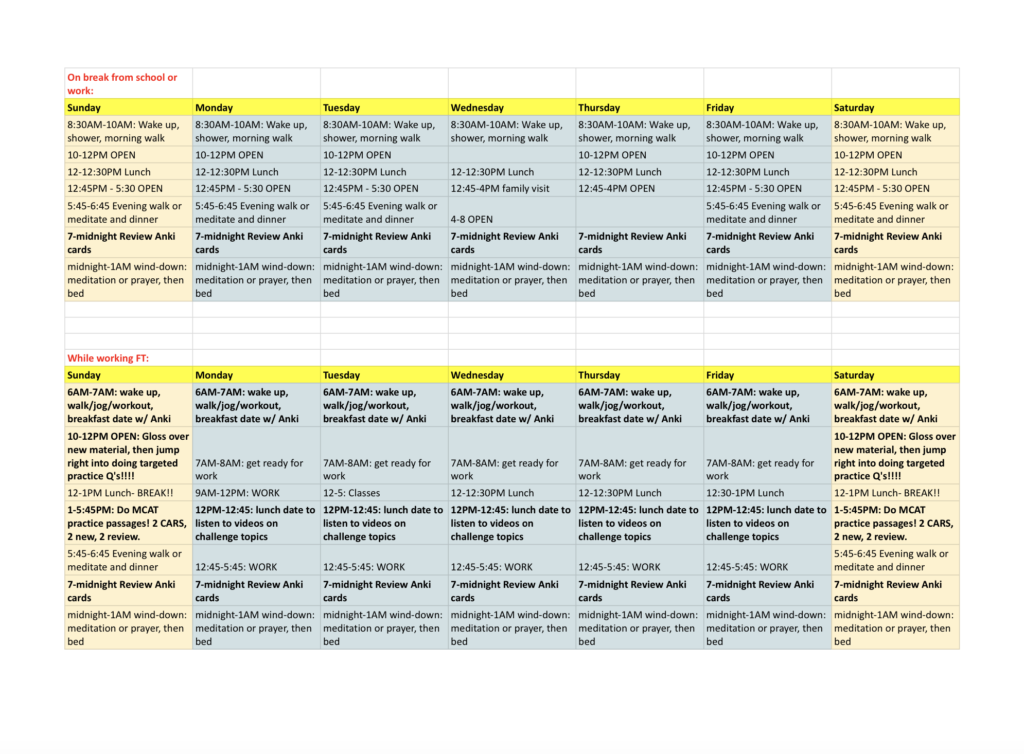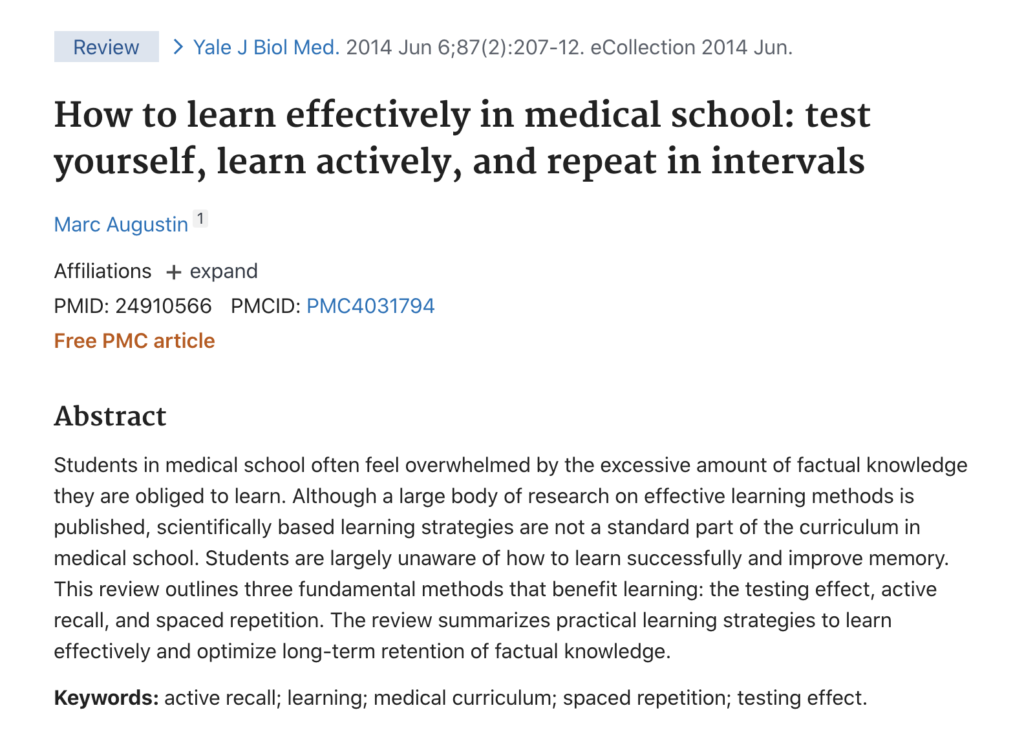Studying for the #MCAT is hard. Studying blindly, without financial means or the support of others who’ve been through it, is much harder. We know because we’ve been there.
If you are just about to embark on your MCAT journey, here are some pointers that are essential to keep in mind in order to be successful:
I.) You do not have time to learn, then re-learn material.
For those working while prepping, this becomes far more true. But it’s true in med school as well, and is often the make-or-break factor that leads to competitive board scores (which is why the #MCAT tests this essential skill).
Do you know how to strategize memory retention? If you don’t, it’s okay! That’s what we’re here for!
It’s all based on a concept actually tested on the MCAT itself: Ebbinghaus’ Forgetting Curve:

If you fail to review, this will become true for you, too!

We get you. We’ve been there too.
This means that from the start of your MCAT studying to the end, once you learn something you must prioritize not having to relearn it. And the only way to do this (or the most practical way, in our experience and that of hundreds of thousands of #medstudents), is to download a study card app based on a memory algorithm such as Anki, the ultimate study card app (it’s free–no commissions here!)
II.) You may not be the “scheduling type,” but now is the time to learn!
Schedules keep us accountable. They also keep us realistic in our goals. It’s easy to plan, but if you fail to execute time after time because your goals are too unrealistic, you’ll eventually grow complacent.
Make a REALISTIC schedule. Then try it out for a week. Then tweek it and repeat. Once you make it through two weeks of following your schedule consistently, you are on the path for success! Just be sure to include the following: daily review; 70% active learning; 30% passive learning.
If you need to see a sample schedule, we’ve got you covered! The top schedule is for students on break, the bottom for premeds working full-time. If you want to use this schedule as a template, just email us at UnlikelyMDs@gmail.com and we will gladly share!


Do you need a study buddy to keep you accountable? We can help you find one!
III.) Free online resources DO EXIST! They may not always be easy to find, but they are there!
Our supporters and followers have recommended some of the following (though we cannot give an official endorsement to any resource for we cannot guarantee accuracy):
@TheKhanAcademy (assuming @AAMC succeeds in keeping this MCAT course alive)
@TheCrashCourse
@NinjaNerdSci
@Leah4Sci
@DaveExplains
@AmoebaSisters, and
other helpful resources for which some content is free: https://www.masterorganicchemistry.com/ and https://jackwestin.com/
IV. Review is great, but DOING is FAR BETTER!
As demonstrated time and time again, the TESTING EFFECT is real! But don’t take it from us, learn it from the New England Journal of Medicine! The most important way to study is ACTIVELY! This means doing practice Q’s that will force you to think more deeply about a concept once you actually go to read about it / review it. This concept is crucial for survival of, not just the MCAT, but med school itself! So now is the time to internalize this crucial lesson, and feel comfortable making practice 75% of your routine, and passive review only about 25%.

If you’re still with us and completely confused or feeling unsure of yourself, just reach out to us! On social media, via email; or by filling out our “request a mentor/tutor” form and specify that you’re seeking MCAT assistance!






